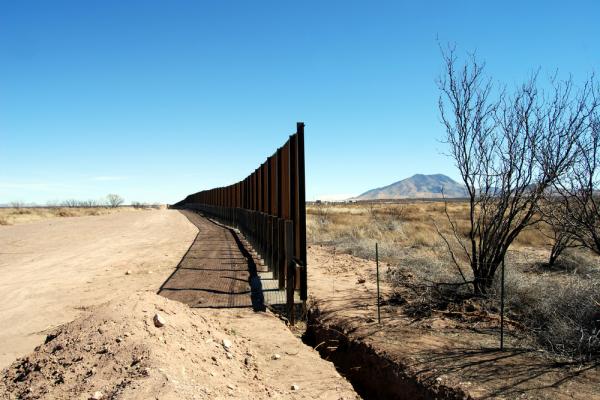IN OCTOBER 2013, an ad hoc group of humanitarians in Tucson, Ariz., chained themselves under buses scheduled to bring undocumented immigrants to trial at the federal district courthouse. The protests were aimed at Operation Streamline, which requires federal criminal charges to be brought against every person accused of an illegal border crossing. The action halted, for one day, Operation Streamline’s en masse prosecution of groups ranging from 50 to 100 people.
Under Operation Streamline, implemented under the Bush administration, deportation cases shifted from civil immigration authorities to federal criminal courts, a move that forced undocumented immigrants into the federal criminal justice system and into U.S. prisons. Operation Streamline is undergirded by a 2005 Customs and Border Patrol program called the Consequence Delivery System (CDS), which “guides management and agents through a process designed to uniquely evaluate each subject and identify the ideal consequence to break the smuggling cycle.” Using CDS, a first border-crossing offense is treated as a misdemeanor, punishable by up to six months in prison. Those who are caught a second time face deportation and possible felony convictions punishable by up to 20 years in prison.
Prior to CDS, border crossers without proper documentation were rarely prosecuted as criminals; instead, they were “administratively deported” through the civil immigration system. Under fast-track programs such as Operation Streamline, a federal criminal case—with prison and deportation consequences—can be completed in two days or less.
Read the Full Article

